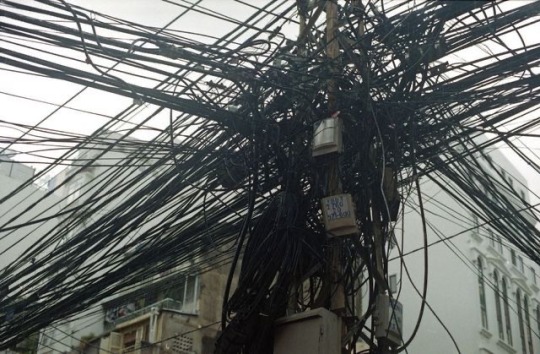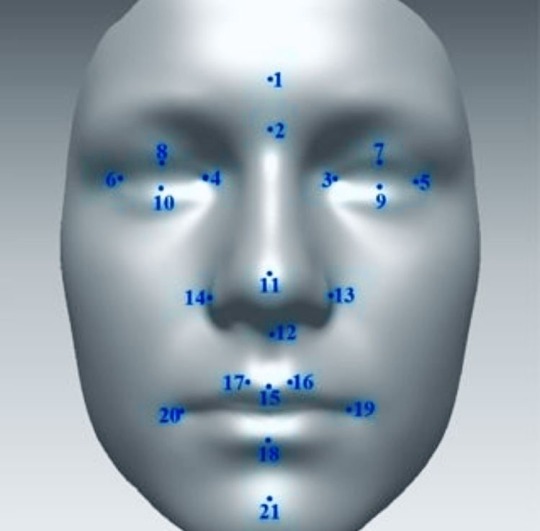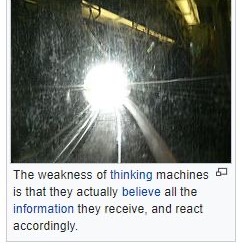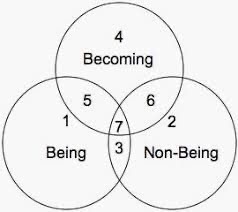#facial recognition data
Explore tagged Tumblr posts
Photo

(via Vending machine error reveals secret face image database of college students | Ars Technica)
Canada-based University of Waterloo is racing to remove M&M-branded smart vending machines from campus after outraged students discovered the machines were covertly collecting facial-recognition data without their consent.
The scandal started when a student using the alias SquidKid47 posted an image on Reddit showing a campus vending machine error message, "Invenda.Vending.FacialRecognitionApp.exe," displayed after the machine failed to launch a facial recognition application that nobody expected to be part of the process of using a vending machine.
"Hey, so why do the stupid M&M machines have facial recognition?" SquidKid47 pondered.
The Reddit post sparked an investigation from a fourth-year student named River Stanley, who was writing for a university publication called MathNEWS.
Stanley sounded alarm after consulting Invenda sales brochures that promised "the machines are capable of sending estimated ages and genders" of every person who used the machines without ever requesting consent.
This frustrated Stanley, who discovered that Canada's privacy commissioner had years ago investigated a shopping mall operator called Cadillac Fairview after discovering some of the malls' informational kiosks were secretly "using facial recognition software on unsuspecting patrons."
Only because of that official investigation did Canadians learn that "over 5 million nonconsenting Canadians" were scanned into Cadillac Fairview's database, Stanley reported. Where Cadillac Fairview was ultimately forced to delete the entire database, Stanley wrote that consequences for collecting similarly sensitive facial recognition data without consent for Invenda clients like Mars remain unclear.
Stanley's report ended with a call for students to demand that the university "bar facial recognition vending machines from campus."
what the motherfuck
#m&m vending machine#secret face image database#college students#massive invasion of privacy#tech#collecting facial-recognition data without consent
474 notes
·
View notes
Text
youtube
Law enforcement’s ability to track and profile political protestors has become increasingly multifaceted and technology driven.
In this edition of Incognito Mode WIRED Senior Editor, Security & Investigations Andrew Couts and WIRED Senior Writer Lily Hay Newman discuss the technologies used by law enforcement that put citizens' privacy at risk—and how to avoid them.
#living in the u.s.a.#this dystopian nightmare of a country#surveillance state#police state#facial recognition#u.s. politics#protest safety#2025#How Governments Spy On Protestors#social media#IMSI catchers#geofencing#data brokers#license plate readers#drones#emerging surveillance tech#how to protect yourself
5 notes
·
View notes
Text






























⋆。˚ ☁︎ ˚。⋆。˚☽˚。⋆ ⋆。˚ ☁︎ ˚。⋆。˚☽˚。⋆ ⋆。˚ ☁︎ ˚。⋆。˚
Glory be to the Father
and to the Son
and to the Holy Spirit,
as it was in the beginning
is now, and ever shall be
world without end.
Amen.
⋆⁺₊⋆ ☀︎ ⋆⁺₊⋆ ⋆⁺₊⋆ ☀︎ ⋆⁺₊⋆ ⋆⁺₊⋆ ☀︎ ⋆⁺₊⋆ ⋆⁺₊⋆
#transhumanism#eternal slumber#mechanical divinity#divine machinery#the holy mecha#Jesus saves#facial recognition is evil#Protect your data
10 notes
·
View notes
Text
EU passes artificial intelligence act

View On WordPress
#ai#artificial intelligence#computer#data#facial recognition#information#machine learning#meme#memes#safety#security
3 notes
·
View notes
Text
why did they shove ai research into fontaine
#mfw 'graph adversarial technology' -> generative adversarial networks aka GANs aka real comp sci#and we're helping that researcher gather training data?? 😭😭 what is this 😭 us when we take pictures so she can develop#the newest and greatest facial recognition software for robots 😭#me when i die because gacha game imitates my life too closely#liveblog insanity#genshin impact
2 notes
·
View notes
Text
There are other companies/organisations also attempting to follow this model. One such example is these vending machines in Canada:
123K notes
·
View notes
Text
🇨🇦🇺🇸 U.S. to implement facial biometrics at land borders, impacting Canadian travelers with new security measures. 🇨🇦🇺🇸 Discover how facial biometrics work, what it means for Canadians, and tips to prepare for smoother U.S. border crossings 👇🏻
#biometric data privacy concerns#canada news#canadian#Canadian travelers U.S. border#Canadians U.S. land border#CBP biometric technology#facial biometrics U.S. border#facial recognition land crossings#future of biometric travel#manual document check border#Ontario#U.S. border exit tracking#U.S. Canada border security
0 notes
Text
youtube
0 notes
Text
घिबली स्टाइल तस्वीरों का क्रेज: मस्ती के साथ छिपा है बड़ा खतरा! #News #HindiNews #IndiaNews #RightNewsIndia
#AI generated images#AI tools safety#cyber fraud#data leak#deepfake dangers#facial recognition technology#Ghibli style photos#personal data protection#privacy risks#Social Media Trend
0 notes
Video
youtube
McDonald’s is Testing Facial Recognition and AI at Drive-Thrus
#youtube#mcdonalds#boycott#a.i#facial recognition#late stage capitalism#capitalism#data privacy#elon musk#donald trump#trump administration#democrats#republicans#boycott mcdonalds
1 note
·
View note
Text
China’s Watchful Eye: AI Surveillance in Uganda
New Post has been published on https://thedigitalinsider.com/chinas-watchful-eye-ai-surveillance-in-uganda/
China’s Watchful Eye: AI Surveillance in Uganda


This marks the first in a series by Unite.AI exploring the growing connections between international government bodies and AI surveillance. Across the globe, state-driven surveillance programs are rapidly evolving, often underpinned by partnerships with powerful technology exporters such as China, Israel, and Russia. Uganda serves as a compelling case study, revealing how AI surveillance has been deployed, expanded, and justified in the name of national security.
AI surveillance in Uganda has undergone significant expansion, deeply influencing security, governance, and public oversight. There may be cause for concern, especially with the Ugandan government previously using military courts to prosecute civilians.
Uganda has recently implemented an extensive AI-powered surveillance system featuring thousands of closed-circuit television (CCTV) cameras equipped with facial recognition capabilities. This initiative – part of a nationwide “Safe City” plan – was rolled out with the help of China’s telecom giant Huawei. Ugandan authorities argue that the high-tech network will bolster public safety and help curb rising crime rates. However, the program has also sparked debate, as critics voice concerns over privacy, potential abuse of the technology, and the broader implications of state surveillance. Uganda’s experience exemplifies a growing global trend of governments adopting AI surveillance in the name of security, raising important questions about how to balance security and civil liberties in the digital age.
Background: Uganda’s Safe City Surveillance Project
The push for CCTV surveillance in Uganda gained momentum after a series of high-profile violent crimes in 2017. Following the assassination of a senior police official, AIGP Andrew Kaweesi in March 2017, President Yoweri Museveni directed security agencies to urgently install “spy cameras” across major towns and highways. This political directive led to the launch of an ambitious Safe City surveillance project in 2018, managed by Huawei. The project came with a price tag of Ugandan Shillings 458 billion (approximately $126 million).
Implementation began in Kampala Metropolitan Area as the first phase. The plan envisioned over 3,200 cameras deployed across greater Kampala, monitored from centralized command centers. While we have no current data, by late 2019, the rollout in the capital was nearly complete – about 85% of the Kampala phase (roughly 2,500 cameras) had been installed. These cameras watch over streets, intersections, and public spaces, feeding video to police control rooms in real time. The system is part of Huawei’s global Safe City initiative which aims to use technology to assist law enforcement in urban areas. Ugandan police officials indicated that after Kampala, the surveillance network would be expanded to all major towns nationwide.
Huawei Ownership
Huawei Technologies is officially a private company that claims to be entirely employee-owned. Its unique ownership structure is highly opaque: roughly 99% of Huawei is held by a trade union committee on behalf of its employees, with founder Ren Zhengfei reportedly owning the remaining 1%.
Employees are granted virtual shares that entitle them to profit-sharing, but external analyses suggest these shares do not confer typical control or voting rights over the company’s governance. This structure – ownership via a company labor union committee – is extremely unusual in China, especially for a firm of Huawei’s size
The lack of transparency about who ultimately controls the trade union committee has fueled questions about whether Huawei’s management or other actors wield true influence over the company.
Huawei insists no outside entity (including the government) holds any shares and that it is an independent, employee-run enterprise.
Despite Huawei’s assertions of independence, its ties to the Chinese state and Communist Party are a point of contention. Huawei’s founder, Ren Zhengfei, is a former engineer for the People’s Liberation Army, and he has been a member of the Chinese Communist Party (CCP) since the late 1970s. Like many large Chinese companies, Huawei hosts an internal CCP committee or “party cell” among its employees.
Such party organizations are common in Chinese firms and are meant to ensure the company’s policies align with state and Party objectives
Western officials often point to Ren’s military background and Party membership as signs that Huawei could be influenced by Beijing. U.S. Secretary of State Mike Pompeo, for example, alleged in 2019 that Ren was “lying” about Huawei’s lack of government ties.
Official Rationale and Early Impact
The Ugandan government’s stated rationale for investing in AI-powered surveillance is to strengthen public safety and modernize crime fighting. Police and government officials pointed to a surge in violent crime – including assassinations, robberies, and kidnappings – as justification for the CCTV project. The procurement of the Huawei camera system was explicitly presented as an effort “to reduce violent crime” in the country.
Security agencies quickly touted early successes attributed to the new surveillance tools. In early 2019, as cameras were being installed around Kampala, police reported dozens of incidents already solved or aided by the CCTV footage. Officials claimed the cameras helped investigators make progress on over 40 cases within Kampala’s central and surrounding divisions in a short period, including identifying suspects and vehicles involved in crimes. The Uganda Police Force praised the CCTV network as a significant upgrade for policing, noting that features like facial recognition and automatic number plate reading would enhance their ability to identify criminals and respond swiftly.
Privacy and Political Concerns
Despite the promised security benefits, Uganda’s AI surveillance program has faced heavy criticism from opposition leaders, civil society activists, and privacy advocates. Their concerns center on the potential for abuse of these technologies in a country with a long-ruling government and a history of crackdowns on dissent. Opposition politicians have warned that the nationwide camera network could easily be turned into a tool for political surveillance – used to track and identify government critics under the pretext of public security. Notably, Ugandan police acquired the facial recognition camera system just ahead of contentious general elections in 2021, heightening suspicions about its true purpose.
Privacy rights organizations also objected to the lack of adequate legal safeguards and oversight when the surveillance rollout began. The Kampala-based digital rights group Unwanted Witness criticized the government for rushing to deploy “spy cameras” without an enabling law or clear guidelines, warning that this could “endanger more lives” rather than protect them. Activists pointed out that in the absence of privacy legislation and transparency, the vast data collected by CCTV and facial recognition systems could be leveraged to monitor innocent citizens, stifle free expression, or target political opponents.
Comparative Insights: AI Surveillance in Africa
Uganda is not alone in embracing AI-powered surveillance – similar programs have been launched in other nations, raising parallel debates over security and privacy:
Kenya: Uganda’s neighbor has partnered with Huawei to implement its own Safe City surveillance system, with over 1,800 high-definition cameras installed in Nairobi.
Zimbabwe: The country entered a controversial agreement with CloudWalk Technology to develop a nationwide facial recognition program.
Conclusion
Uganda’s foray into AI-powered surveillance underscores the double-edged sword that such technology represents. Moving forward, ensuring legal protections and oversight will be crucial. Uganda’s experience highlights the broader global challenge of balancing security needs with privacy rights.
The implications of a fully surveilled population are profound. Citizens may experience self-censorship, limiting their freedom of speech and expression out of fear of government retaliation. A climate of mass surveillance could lead to a chilling effect on political dissent, activism, and public assembly. Additionally, extensive surveillance often erodes trust between the government and the public, as people may feel they are being watched at all times, inhibiting open democratic discourse. Without strict safeguards, these technologies could shift from crime prevention tools to instruments of control.
This is just the beginning of our deep dive into the global rise of AI-driven surveillance and its far-reaching implications. As this series continues, we will explore how governments wield AI as a tool for control, the risks it poses to civil liberties, and the growing concerns over privacy and transparency. From predictive policing to mass data collection, we will examine the real-world impact of AI surveillance and what it means for the future of freedom and governance in an increasingly monitored world.
#agreement#ai#ai surveillance#AI-powered#analyses#background#billion#Cameras#Case Study#cell#censorship#challenge#China#climate#command#Companies#crime#crime prevention#data#data collection#democratic#double#elections#employee#employees#Engineer#enterprise#eye#facial recognition#fear
0 notes
Text
Innefu Lab: Leading AI Solutions for Cybersecurity and Fraud Prevention

Innefu Lab is revolutionizing the world of cybersecurity and predictive intelligence with its advanced AI-driven technologies. As a 100% "Make-In-India" venture, Innefu Lab provides cutting-edge solutions in Information Security and Data Analytics to safeguard businesses and government organizations across India and the Middle East. Trusted by over 100 clients, Innefu Lab is at the forefront of AI and machine learning-based analytics, offering powerful technology that delivers smarter and safer environments.
What is Innefu Lab?
Innefu Lab is an AI-driven research and development company specializing in next-generation cybersecurity solutions. With a focus on data protection, fraud prevention, and machine learning, Innefu Lab is helping organizations stay ahead of evolving cyber threats. Their solutions, which include biometric and facial recognition software, are used across sectors like banking, law enforcement, and surveillance.
AI in Image and Video Analytics: Enhancing Security and Fraud Prevention
Innefu Lab’s AI-Vision technology is leading the charge in image and video analytics. AI-powered facial recognition and video analysis have become essential tools for fraud prevention, criminal identification, and security. Innefu Lab’s solutions analyze images and videos in real-time, providing quick and accurate results.
How AI Facial Recognition Works
Innefu Lab’s facial recognition technology converts images into greyscale to enhance face detection. The algorithm extracts unique facial features like jawline shape, eye spacing, and facial proportions, then matches them with a database to verify identities. This technology is widely used in preventing identity theft, fraud detection, and law enforcement.
AI Video Analytics
Video analytics breaks down video footage into individual frames, analyzing them as independent images. This technology is crucial for applications like traffic management, event security, and real-time surveillance, enabling better monitoring and faster response times.
Real-World Applications of Innefu Lab’s AI Technology
Innefu Lab’s AI-Vision software is already making a tangible impact in various sectors, from banking to law enforcement. The technology is specifically designed to combat identity theft, detect fraud, and aid in criminal investigations.
AI for Banking Fraud Prevention
One of the most prevalent forms of fraud is identity theft. Fraudsters often use fake IDs to access banking services. Innefu Lab’s facial recognition software helps banks detect such fraudulent activities by comparing images with existing databases to identify potential fraudsters. Leading private banks in India use Innefu Lab’s technology to strengthen KYC (Know Your Customer) processes and ensure secure transactions.
AI in Law Enforcement
In law enforcement, Innefu Lab’s software plays a crucial role in solving crimes and identifying criminals. In one case, AI-Vision helped locate over 3,000 missing children in just four days, earning praise from the National Commission for Protection of Child Rights. In 2020, Delhi Police used the software to identify rioters during the North East Delhi riots, which was later mentioned in the Home Minister’s Parliamentary speech.
Other Applications
Banking: AI-Vision enhances ATM security by verifying identities and preventing card skimming or unauthorized transactions.
Airports: AI-Vision streamlines the passenger boarding process, reducing the need for manual identity verification and enhancing security.
Retail: Retailers are integrating facial recognition into self-service kiosks for a more personalized customer experience, minimizing human intervention.
Event Security: AI-Vision helps improve event security by verifying guest identities in real-time, ensuring smoother and safer entry to events.
Benefits of Innefu Lab's AI Solutions
Faster Fraud Detection: Innefu Lab’s AI-powered systems identify fraudulent activities quickly, preventing potential financial losses.
Real-Time Criminal Identification: AI technology allows law enforcement to identify criminals in real-time, improving response times and public safety.
Improved Customer Experience: With AI-Vision, businesses can offer personalized services to customers while reducing human errors.
Enhanced Security: AI-driven facial recognition ensures a higher level of security in banking, airports, retail, and more.
The Future of AI in Cybersecurity and Predictive Intelligence
As cyber threats become more sophisticated, Innefu Lab is committed to staying ahead of the curve. The company’s AI-powered solutions are not only reactive but also proactive in preventing cybercrime and security breaches. By integrating machine learning, predictive analytics, and real-time identity verification, Innefu Lab is setting new standards in cybersecurity, ensuring a safer and smarter future.
In a world where digital transformation is rapidly advancing, Innefu Lab is paving the way for smarter, safer technology. The company’s innovations in AI and cybersecurity are redefining what it means to protect sensitive data, combat fraud, and safeguard public safety.
Why Choose Innefu Lab?
Innefu Lab’s AI technology is trusted by top organizations across India and the Middle East for its efficiency, accuracy, and reliability. With solutions tailored for various industries, Innefu Lab is revolutionizing the way businesses approach cybersecurity, fraud prevention, and predictive intelligence.
In a fast-evolving digital landscape, Innefu Lab’s commitment to innovation and real-world impact ensures that their clients stay ahead of potential risks, securing their future in an increasingly connected world.
#Innefu Lab#Tarun Wig#tarun wig innefu labs#AI in law enforcement#Real-time surveillance AI#Data analytics for security#Innefu Lab AI#AI cybersecurity solutions#Facial recognition software#Predictive intelligence AI
0 notes
Text
5 Reasons Why Your Business Should Implement a Biometric System Today
In an ever-changing marketplace today, speed and security have become the two most important focal areas of concern for a company. No longer a concept of the future, the biometric system has become a tool for businesses of all sizes. Biometrics can help streamline processes, supplement security, and enhance employee accountability. Here are five serious reasons your business should have a biometric system today:
1. Boost Your Security
Plastic key cards, passwords, or PINs form very weak security shields and are easily stolen or compromised. Biometric system removes all these risks and offers protection-only by biological marks, including fingerprints, facial recognition, or iris scanning. Having such data is practically impossible to duplicate, thus protecting your business on a strong ground.
Install a biometric system, and it will automatically monitor your sensitive areas, bar entry to unauthorized persons and protect vital information. Restricted access will apply whether it is an entry to some restricted sections or transactions.
2. Boost Accountability and Productivity
Monitoring attendance and productivity is a challenge in a vast organization. The common attendance system has no fail-proof to prevent time theft and buddy punching. The biometric system overcomes this problem because it detects attendance by biometrics, where each individual is identified through unique biological identifiers.
Eliminating chances of dishonest practices has put accountability for their work hours over employees. Thus, you're going to see more punctuality and productivity, which could lead to great improvements in your organization's bottom line.
3. Make operations easier
In the competition among businesses of today, efficiency has become the mantra. A biometric system thus makes many administrative activities easy:
Time and Attendance Management: Automatically records employee work hours without manual intervention.
Access Control: No need for physical keys or access cards.
Payroll Integration: Clearly integrates into payroll systems for an accurate salary calculation.
These processes not only reduce the administrative workload but also minimize human errors, giving a chance for your team to put efforts into strategic initiatives.
4. Cut Costs
In fact, the upfront cost of biometrics may be enormous, but in the end, they are pretty economical. Removing the requirement for physical access devices and minimizing administrative fees helps biometric systems save considerable amounts over time.
Also, since these systems improve security and accountability, they save businesses from incurring losses due to theft, fraud, or inefficiencies. Therefore, investing in a biometric system would be worthwhile for that business seeking maximum ROI.
5. Scale and Customize
Before growing further, the organization should definitely be worried about the safety and operations of its new sites. This is where biometrics come into play: the treatment of biometric systems becomes a very customizable and scale-able platform that will fit every need of every organization.
For example, you could either invest in fingerprint scanners, facial recognition systems, or iris-scanning systems depending on what your security budget and your security have. In addition, most biometric solutions will be integrated with pre-existing IT structure, thus avoiding additional investments in IT infrastructures.
Conclusion
Thus, introducing a biometric system is one such business enrichment strategy adopted for improving security, increasing accountability, and streamlining operations. Benefits such as reduced fraud, simplified processes, and costs saved make biometric technology a strong solution to businesses today. Enable your organization with future operations in as far as effective and safe growth is concerned by implementing such systems into the company.
Rasnal Telecom and Security has the most sophisticated biometric system products for various domains ranging from access control to time attending systems, which will in turn be more secure and very efficient. The reliable and scalable solutions will certainly provide a boost for businesses in the areas of asset protection, attendance management, and most importantly, operational efficiency.
0 notes
Text
Just discovered why every delivery driver has the most 👁️👁️ photo 😭
#as I’ve said#I need more money so I’m signing up to grocery shop lmao#and apparently they use your facial recognition photo (obligatory damn they got my data) (as if it’s not already out there lol)#so love that I’m stuck with a midnight photo of my face still with an open cyst for any customer to look at 😭😭😭😭
0 notes
Quote
In response to a knife-stabbing in the West-German town of Solingen in late-August, the government has introduced a so-called “security package” consisting of a bouquet of measures to tighten asylum rules and introduce new powers for law enforcement authorities. Among them, three stand out due to their possibly disastrous effect on fundamental rights online: Biometric Surveillanc, Predictive Policing & Police Access to More User Data.
Germany Rushes to Expand Biometric Surveillance | Electronic Frontier Foundation
#germany#privacy#policing#data#facial recognition#government#surveillance#biometric#predictive policing#police#access#ethics
0 notes
Text
The Surprising Danger Lurking in Your Smart Glasses: A Wake-Up Call for Privacy
How Brilliant Innovations Can Be Misused and Abused, Causing Unnecessary Stress to the Public As a retired scientist and health advocate in many countries, I’ve had the privilege of witnessing incredible technological advances throughout my 53-year career in the healthcare industry. Privacy issues have always concerned me as they affect our mental health. From early computing systems to the…
#AI-powered privacy breaches#Cybersecurity risks of smart devices#Data privacy and security#Doxing through smart glasses#Ethics of wearable tech#Facial recognition technology#Future of tech and privacy#Hacking wearable devices#Harvard researchers Meta hack#Internet-connected eyewear risks#Meta Ray-Ban glasses hack#Personal data exposure#PimEyes facial recognition#Privacy Impact Mental Health#Privacy Is Everyone&039;s Business#Privacy Matters#Privacy protection in tech#Protecting personal information#Smart glasses and surveillance#Smart glasses doxing concerns#Smart glasses privacy risks#Technology misuse awareness#Technology Must Respect Privacy#We can&039;t compromize our privacy#Wearable tech privacy concerns
0 notes